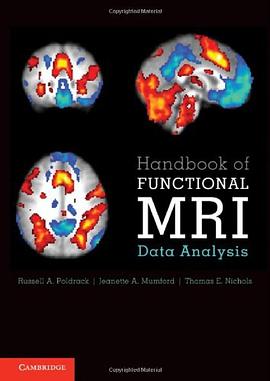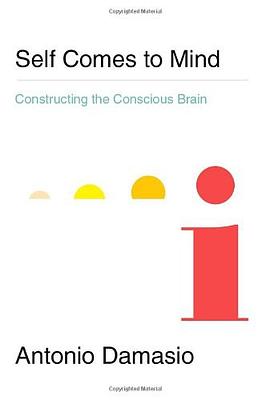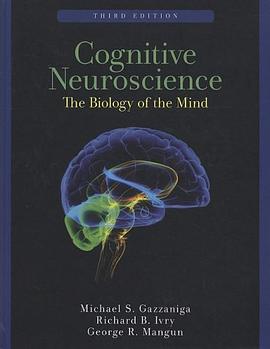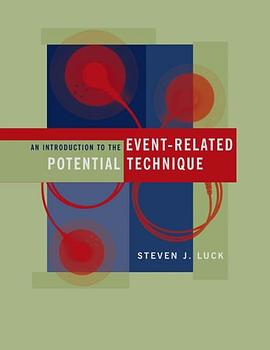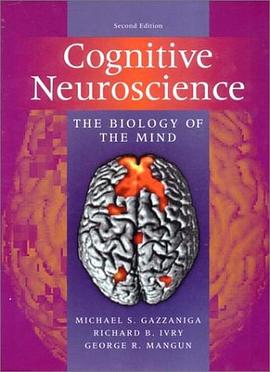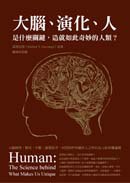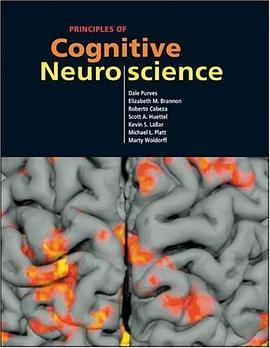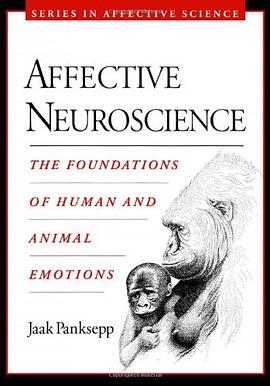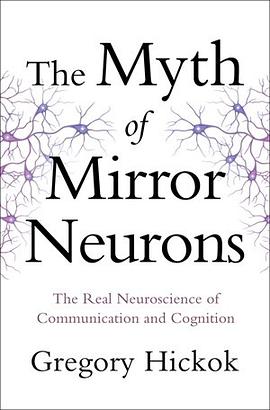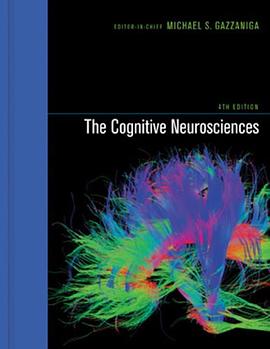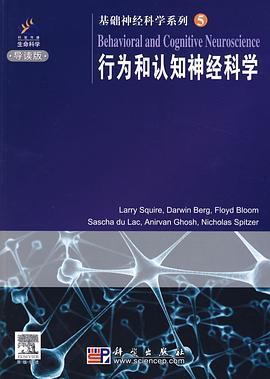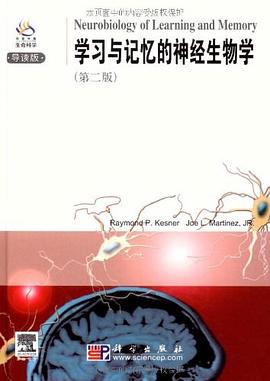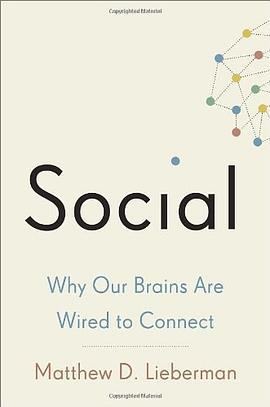

具体描述
We are profoundly social creatures – more than we know.
In Social , renowned psychologist Matthew Lieberman explores groundbreaking research in social neuroscience revealing that our need to connect with other people is even more fundamental, more basic, than our need for food or shelter. Because of this, our brain uses its spare time to learn about the social world – other people and our relation to them. It is believed that we must commit 10,000 hours to master a skill. According to Lieberman, each of us has spent 10,000 hours learning to make sense of people and groups by the time we are ten .
Social argues that our need to reach out to and connect with others is a primary driver behind our behavior. We believe that pain and pleasure alone guide our actions. Yet, new research using fMRI – including a great deal of original research conducted by Lieberman and his UCLA lab -- shows that our brains react to social pain and pleasure in much the same way as they do to physical pain and pleasure. Fortunately, the brain has evolved sophisticated mechanisms for securing our place in the social world. We have a unique ability to read other people’s minds, to figure out their hopes, fears, and motivations, allowing us to effectively coordinate our lives with one another. And our most private sense of who we are is intimately linked to the important people and groups in our lives. This wiring often leads us to restrain our selfish impulses for the greater good. These mechanisms lead to behavior that might seem irrational, but is really just the result of our deep social wiring and necessary for our success as a species.
Based on the latest cutting edge research, the findings in Social have important real-world implications. Our schools and businesses, for example, attempt to minimalize social distractions. But this is exactly the wrong thing to do to encourage engagement and learning, and literally shuts down the social brain, leaving powerful neuro-cognitive resources untapped. The insights revealed in this pioneering book suggest ways to improve learning in schools, make the workplace more productive, and improve our overall well-being.
作者简介
Mathew D. Lieberman was trained at Harvard University and is a professor in the Departments of Psychology, Psychiatry, and Biobehavioral Sciences at the University of California, Los Angeles, and the founding editor of the journal Social Cognitive and Affective Neuroscience. In 2007, the American Psychological Association awarded him the Distinguished Scientific Award for an Early Career Contribution to Psychology, an award given to one social psychologist every two years. He is one of the foremost authorities in the world on the study of Social Neuroscience.
目录信息
读后感
昨天在家里看完了《社交天性》,这是一本新书,今年6月份出版的。书里介绍了大量的试验,更是利用了核磁共振扫描大脑工作区域之类的手段,借此来表达他的观点,人类天生就有社交冲动,并且有三大驱动力。 作者是马修·利伯曼,社会认知神经科学领域最重要的权威学者之一,他研...
评分关注了湛庐文化,跟着湛庐的精读,意外地读到了这本好书《社交天性》,于是过去的十五天就成了很多年来难得的愉快、丰富的“洗脑之旅”,收获大大滴: 1、以前望而生畏的脑神经、脑区功能划分,看完书后轻松就能想起愉悦回路、报警回路啦,工作记忆区域,镜像元神经系统啦,大...
评分#年读100本书的来呀# 2019年1月 4本/100本 书名:《社交天性:人类社交的三大驱动力》 类型:脑科学/心理学/社交沟通 不擅长社交的自己认为对提升社交能力和理解社交还是蛮重要的。(书籍可读性蛮低花了2天几个钟硬啃) 主要观点:人天生有喜好社交的大脑,因为我们默认的大脑...
评分过去,我很少专门去考虑人和人的交流、社会形成的推动力到底是什么。即便偶然想起,也不过会从“物质决定意识”的终极哲学角度去分析。 直到我看了这本书。 看到书名的时候,你可能会认为这是一本关于社交网络的,甚至是相关网站运营的工具书,并不是。 这是一部关于人脑神经科...
评分用户评价
喜欢书里的各种例子
评分我们对自己始终所知甚少
评分我是很不爱社交的,看这本书大概是为了自虐吧。平心而论,还是给我带来了很多新知,有了一些新角度看问题。虽然有些研究看了也撇嘴……
评分语言平实, 作者偶尔会穿插自己生活中的事情举例, 作为非专业读者,这本书还是具有可读性的。虽然前半部分略显繁琐单调, 列举大量实验来来去去只为证明一个观点,our brains are designed to be social. 最后几章提出一些在教育和社会可实践的应用想法,有一定启发意义
评分这类用社交疼痛和物理疼痛大脑活跃区域的相似来推出社交疼痛如物理疼痛一样真实的论证有多强、极少提及元分析的个别研究结果作为论据有多可靠、fMRI无法探究大脑内部机制等原因造成许多推论还只是有待验证的假说,撇开这些问题作者提出了一套有趣的观点:进化论上社交愉悦和疼痛对于幼儿存活具有意义,为了满足社交需求我们发展出了把物理动作看作具有意义的行为的镜像系统和解读他人心智的系统,为了与社会相协调社会建构的观念被我们当成了发自内心的信仰(甚至能找到与此相关的大脑区域),因此自我并非如我们所想那般独立于社会和他人之外,而自我意识如全景式监狱般规训着自我,让社会成为我们实行自我控制的最终受益者。
相关图书
本站所有内容均为互联网搜索引擎提供的公开搜索信息,本站不存储任何数据与内容,任何内容与数据均与本站无关,如有需要请联系相关搜索引擎包括但不限于百度,google,bing,sogou 等
© 2025 book.wenda123.org All Rights Reserved. 图书目录大全 版权所有

